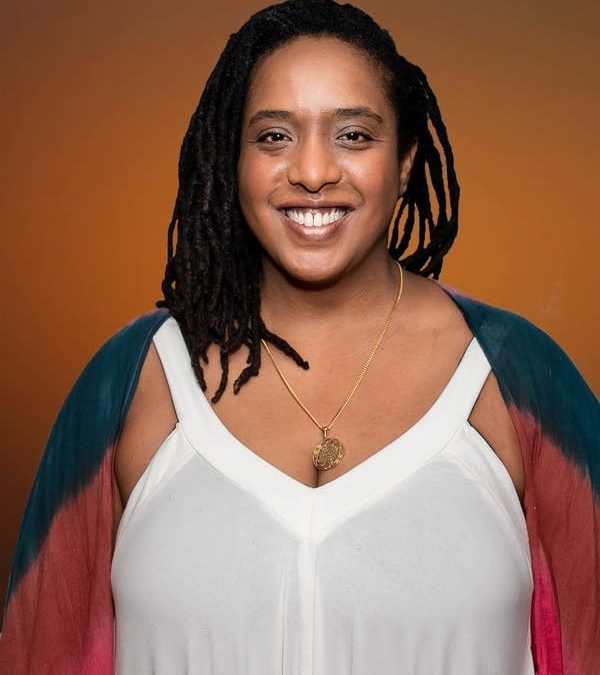
After long delays, Boeing’s Starliner capsule and crew launch into space
June 5, 2024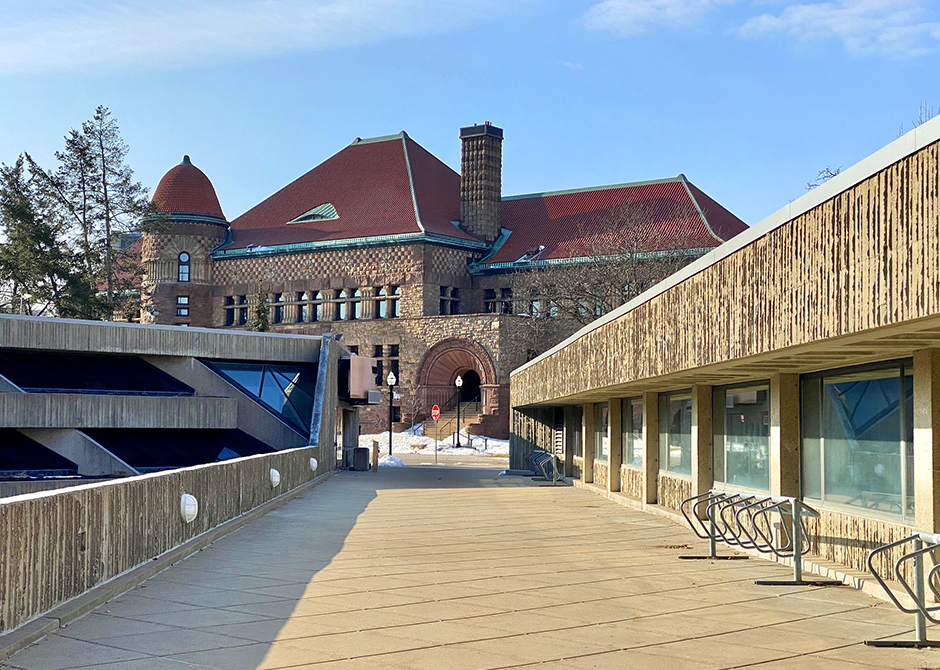
U of M employees welcome reforms to state’s public employment law
June 6, 2024A nature-based retreat center planned outside Two Harbors aiming to provide a restorative getaway for Black, Indigenous and people of color, is receiving pushback from some local residents over concerns of noise, traffic, and other impacts on their rural “way of life.”
Thirty-five residents of Silver Creek township north of Two Harbors have appealed the Lake County planning commission’s April decision to grant the Maji ya Chai Land Sanctuary a conditional use permit to operate the center on 40 acres along the Encampment River.
The notice of appeal, filed in Lake County District Court on May 15, claims the county’s decision was “based on erroneous and insubstantial evidence.” However Assistant Lake County Attorney Russ Conrow says it doesn’t offer substantive allegations to which the county can respond.
The project was founded four years ago by Rebeka Ndosi, a holistic health practitioner who wants to provide a safe space for Black people and other Indigenous and people of color to heal and interact with nature. She describes it as something akin to the cherished tradition of the Minnesota family cabin “up north.”
“We hope Maji ya Chai can serve as a similar retreat for families of color,” said Ndosi, who grew up in the Twin Cities and never fully understood what it meant when classmates told her they’re “going to the cabin.”
She said during COVID, and after George Floyd’s murder, she heard from many Black families asking whether anyone had a cabin they could visit.
“We just need to get out of the city,” is something she said she and other practitioners heard. “We need to clear our heads.”
Ndosi plans to build a wellness center with spaces devoted to group movement and yoga sessions, massage, acupuncture and other kinds of healing. There will be a mobile barrel sauna, with thermaculture and cold water therapies. She says it will offer hikes on the nearby Superior Hiking Trail.
Under the permit the center will be able to accommodate up to 24 overnight guests at a time, with no more than 12 events a year that exceed 24 guests on site.
The inspiration for the center comes in part from her own experience. She speaks of falling in love with the North Shore, yet never feeling like she could completely relax when she visited.
“I was always very aware that I was being watched as one of very few Black folks up there. And that is something that was a barrier, honestly, to fully taking in what this relaxing and restful experience could be on the North Shore. It’s something that I really longed for.”
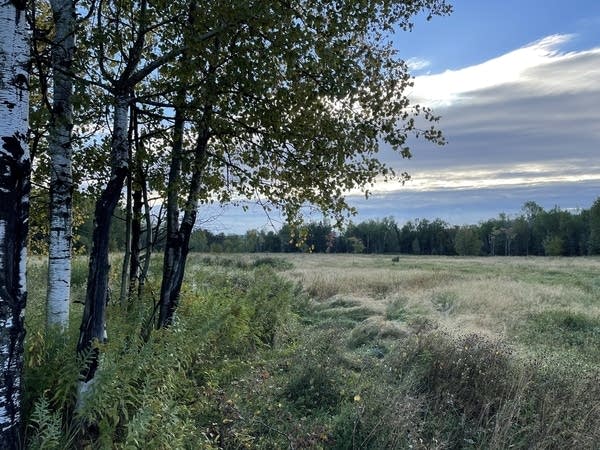
‘Way of life’
The attorney representing the landowners challenging the county’s approval of the project did not respond to requests for an interview. Several landowners who signed the appeal declined or didn’t respond to interview requests.
But several area residents voiced objections at a planning commission hearing in April.
“I don’t want the traffic, the noise, It’s going to impact my way of life,” said Dave Henjum, who also questioned how the development would impact local groundwater supplies. “It’s zoned rural-residential. And that’s why I live there.”
Marsha Snowdon, who lives across the road from the sanctuary, said her family purchased its property in a rural neighborhood nine years ago for the benefits including “minimal traffic, dark skies, almost no neighborhood noises, privacy and general peace and quiet.”
She said the scale of the development would have “major negative effects on all the positive reasons I just stated.”
Others also raised concerns about fire risk.
Ndosi said after meeting with local residents, the center agreed to drop a plan to build a campground on the other side of the river.
During the hearing many people spoke in favor of the proposal, including Duluth-based photographer and speaker Dudley Edmonson, who’s written a book profiling African-Americans in the outdoors called “The Black & Brown Faces in America’s Wild Places.”
Edmondson led a bird-watching trip to the sanctuary land last year that included people who drove up from Minneapolis. He said people told him it was the first time they had ever felt safe in the outdoors.
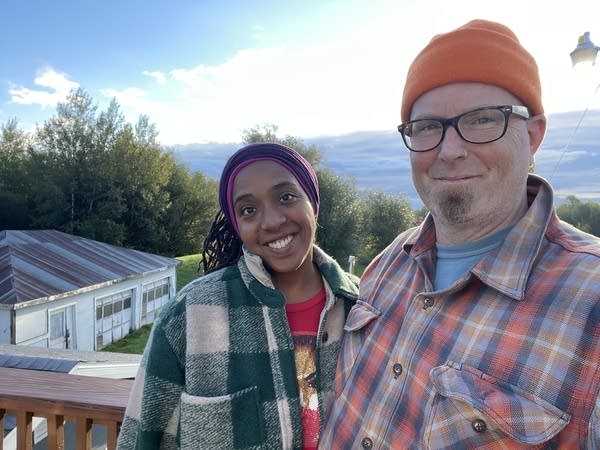
“I believe it might be a bit difficult for white folks to understand what it feels like to be in the outdoors and not feel safe,” he told the commission
Edmonson said spaces like this are increasingly necessary. “And I just want to say that if this community supports this issue, I think you can kind of count yourselves on the right side of history.”
Signs of opposition
Since the appeal was filed, a group of area residents who support the sanctuary have come together to offer their support to Ndosi and gather signatures from locals who back the effort.
“I think they are going to be wonderful neighbors. I really believe that what they are doing is vitally important to the BIPOC community.” said Sara Presler, a retired nurse who lives a couple miles from the sanctuary.
“Those of us who live here are so privileged to have property in this place that is so incredibly beautiful, and peaceful,” Presler continued.
“With the increase in tourism that has been a challenge and will continue to be. But I really hope that we can share this, especially with people of color.”
Presler and others were alarmed at a series of hand drawn signs posted along the road near the sanctuary, with the words “No Clark Road Resort,” and a picture of a stick figure that Presler and other residents Ndosi called “clearly racist.”
“It’s not something that can be really read any other way,” said Ndosi.
Dave Henjum, who declined an interview request with MPR News on the advice of his attorney, told the Lake County Press that he painted the signs. However he said the stick figures depict “an angry Clark Road taxpayer,” and that no racist message was intended.
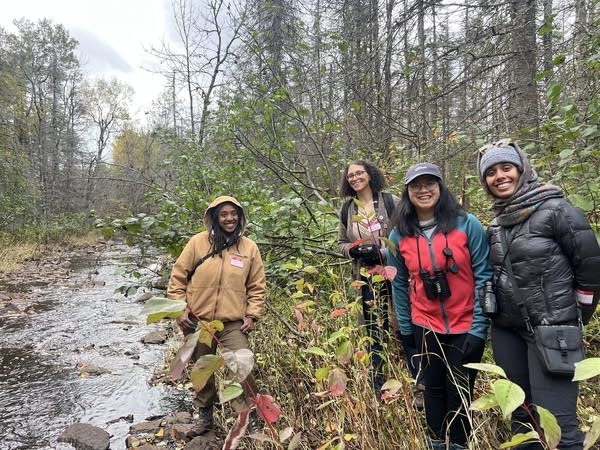
Ndosi said she’s undeterred by the opposition, and heartened by the outpouring of support from many local residents who have rallied on their behalf.
They continue to fundraise, plan to put up a yurt this summer and welcome their first groups this summer and fall. If anything, Ndosi said, the opposition has reinforced her vision for the retreat center.
“It really affirms the need for a space like Maji ya Chai Land Sanctuary, a space that is intentionally welcoming and safe.”



